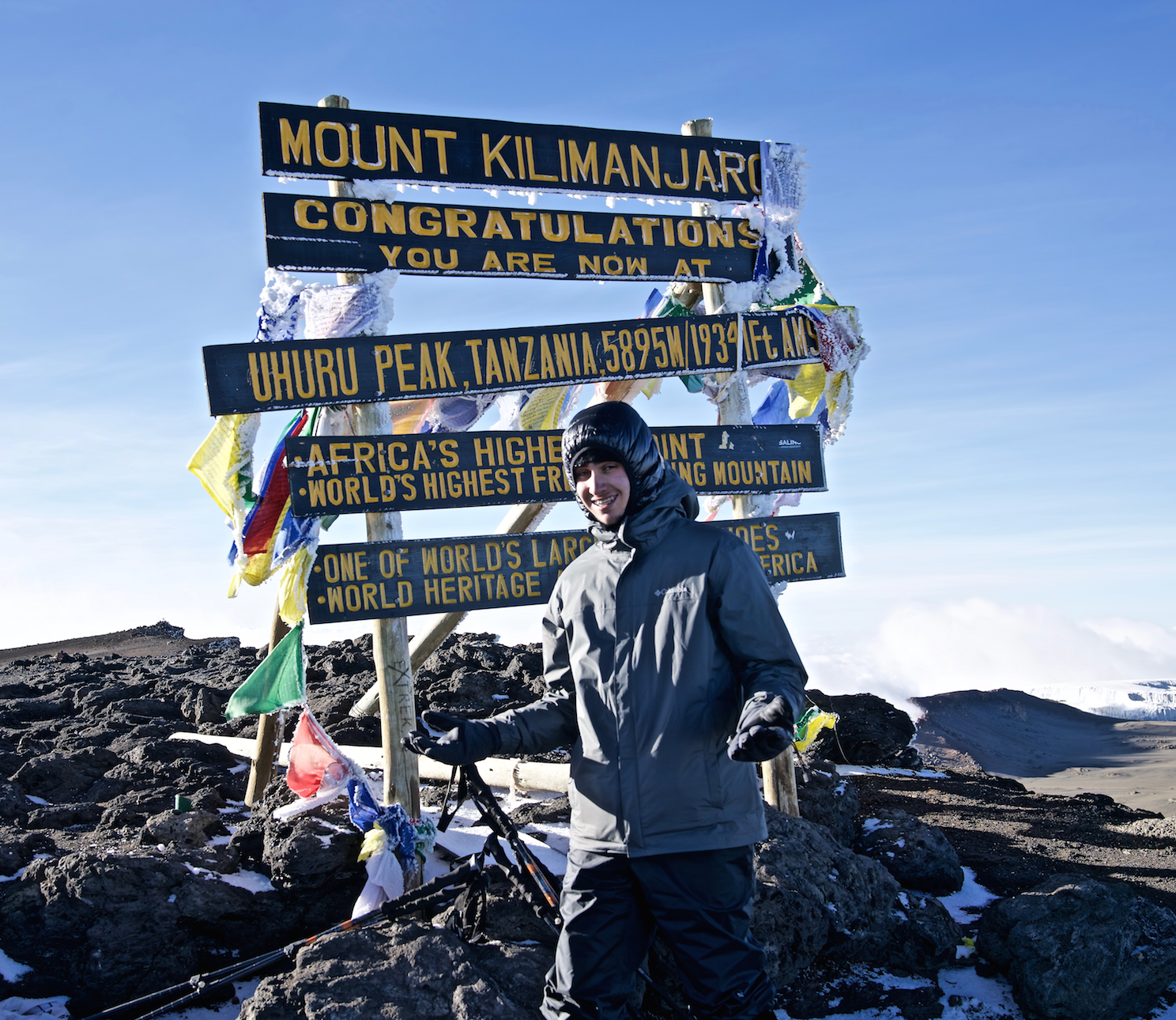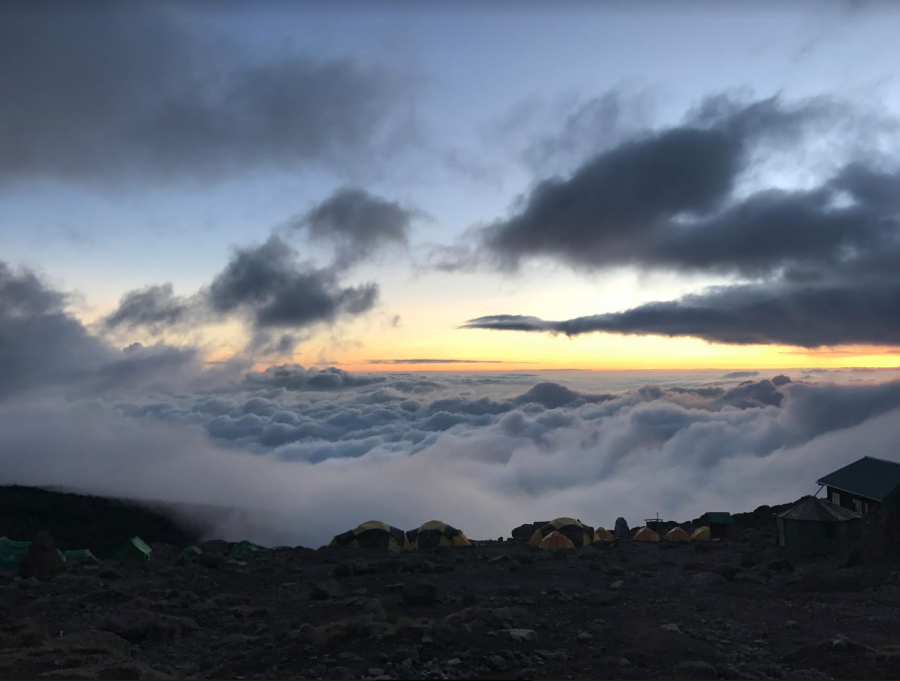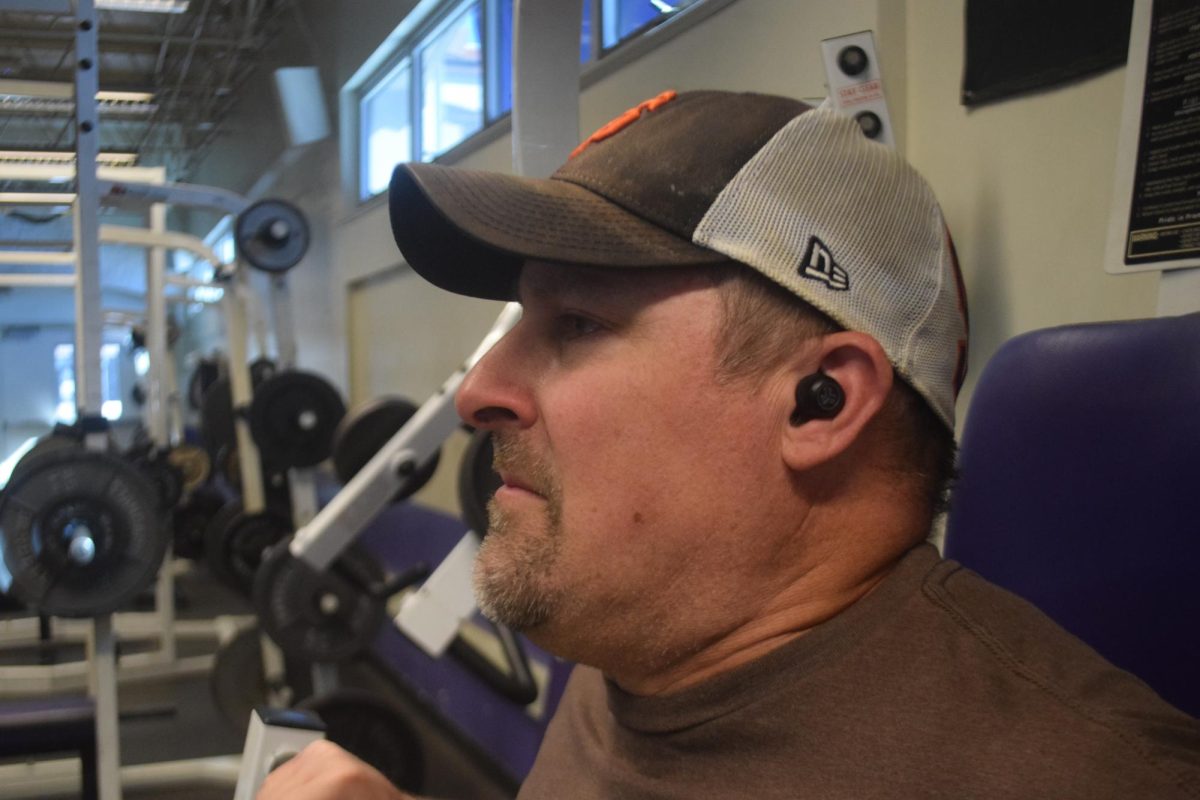“Polepole”
This was a phrase that freshman Daanyal Raja and his family heard repeatedly from their Tanzanian guides as they made their long-awaited climb up one of the world’s highest peaks. In Swahili, it means “slowly, slowly.” And, as they made their way through hail and rain, this phrase encouraged them to take the seemingly impossible trek one step at a time.
Their journey up Kilimanjaro was a long one. In fact, it started five years ago, when Daanyal’s father, Saeed Raja, climbed up Kilimanjaro on his own. He returned from the trip with pictures, stories and life lessons, all of which convinced Daanyal that someday, he wanted to join his father and climb the highest peak in Africa.
“I was in fifth grade at the time, and I was like, ‘Dad, can I please come with you? I can sneak into one of your suitcases if I have to,’” Daanyal said. “But he said, ‘No, you’re too young.’ So I made him promise me that before I graduate high school, he would take me.”

Eventually, Daanyal’s mother Banafsheh Raja and his sister Neelufar Raja, who graduated with the class of 2017, decided to join the pair, and they began training as a family, hiking about two to three times a week. But despite the practice, there were some things that they could not prepare for until they were actually on the mountain.
“One of the things I wasn’t expecting was that some parts of the trail were very strenuous in terms of the terrain, like you were basically climbing up rocks,” Neelufar said. “It was quite intense in that sense, but it was good because hiking with your family means that we all support each other.”
Kilimanjaro has multiple trails that eventually lead to the summit. The Raja family decided to take the longest trail in order to acclimate to the lower oxygen levels as they gained altitude. They hiked approximately 45 miles from Dec. 18 to Dec. 26, a total of nine days, seven days up and two days down, to a final altitude of 19,341 feet.
“We had very, very long days. [My family] didn’t complain. They just went happily one step at a time,” Saeed said. “My compliments to my kids and my wife who did it very well, without complaining and leaving [behind the comforts] of home.”
A typical day on Kilimanjaro meant beginning their hike at around 7:30 or 8 a.m., after eating a protein-heavy breakfast, like porridge, and ending some time in the afternoon between 2 and 4 p.m., depending on how quickly they were able to reach their camp, where they spent the night. Their meals were generally cooked by one of the porters who joined them on the trek, but the variety in meals decreased as they climbed higher as the reduced oxygen in the air prevented them from cooking complex dishes. Still, the family enjoyed the potatoes, sausages and pineapples they ate during their climb.
At night, they slept in tents at camp with a sleeping bag and pad. The sleeping bags were intended to keep climbers warm at high altitudes, so near the bottom of the mountain, where temperatures were higher, the family was fairly uncomfortable, waking up in the morning sweaty. The sleeping situation, like much of the trip, was never comfortable, but it was just enough.
“Most of the time it was either snowing, raining or hailing,” Daanyal said. “So you were constantly wet. You felt out of breath constantly, and you’d need to drink lots of water. The higher up you go, you wonder, ‘Why am I doing this again?’ But I’m just happy that I could keep on going.”
Although the family had expected the climb itself to be rewarding, they had not expected the various other things they would learn while traveling in Tanzania. They were joined along the hike by three guides and 12 to 14 porters. The porters each carried over 25 kilograms of supplies and were only paid two dollars a day. Still, like many of the Tanzanians they met during their 12 days in the country, the porters seemed happy and at peace with themselves.
“Going to a country like Tanzania was really shocking to me,” Neelufar said. “Because the level of poverty you see there is really different from the level of poverty that we as Americans see. It makes you realize how blessed you are, and it really puts your life in perspective.”
So when they returned to California, they were not only proud of their once in a lifetime accomplishment, but also hoped to carry on this newfound perspective.
Although Neelufar may never climb a mountain again, Daanyal values the physical and mental challenge that came with the climb, and can see himself doing something similar again in the future.
“The whole idea of hiking Kilimanjaro is this: the mountain is there, but the mountain doesn’t send anyone invitations,” Saeed said. “So you have to go and you make the decision to hike it.”
Featured image used with permission of Neelufar Raja.






















